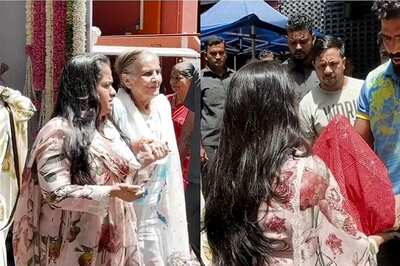
views
R Prakasam’s political career had an abrupt end with his electoral defeat at Attingal in 1960. It was his loss to N Kunhiraman, a Congressman, by a small margin of 103 votes which extinguished the fire in him to continue the political career as a Communist. It was a real shock to hundreds of people who had found in him a leader with a difference.
According to P Viswambharan, former MP and socialist leader, who had also been elected to the Thiru-Kochi Assembly in 1954, in which Prakasam was a member, recalled that he was able to easily repeat his electoral triumph in the next election, this time, to the first Kerala Assembly in 1957.
‘’As the youngest member of the House, he had raised great expectations. But his defeat in the 1960 elections left him disillusioned,’’ Viswambharan said. Prakasam became a legend much earlier itself, after he became the youngest Municipal chairman in the country from Attingal.
Viswambharan recalled that Prakasam had been tortured brutally by the police and had to undergo imprisonment for his active association with Communist party when a ban was clamped on it.
“In the 1946-47 period, Prakasam stayed with me for a few days while both of us had gone underground to evade arrest. Our parties were opposed to each other. But there were no signs of mutual suspicion or betrayal between individuals,’’ he recalls. With his defeat in 1960, Prakasam became inactive in the Communist party much to the disappointment of his followers. Later, he concentrated on managing his family properties.
Prakasam’s family had a major stake in the Thomas Stephen Tiles Factory, a major industrial house of that period, in Kollam. But the political activist in him cannot remain docile for long. He was later attracted to identity politics and took a major role in the formation of SRP during the seventies. But his efforts to stage a comeback ended abruptly after his defeat in the Cherthala constituency. With this defeat, he completely withdrew from electoral politics and became active in the developmental activities of Kumaran Asan Memorial at Kayikkara.
Prakasam had told this reporter at the height of the 2009 Lok Sabha election campaign that he had always been a leftist. But he had some reservations about Communism, its theory and practice in the Indian context and its approach to the individual freedom.
Without making any statement, he was exploring the reasons for the frustration and political impasse, which had drawn the curtains to a political career which would have been more poignant.




















Comments
0 comment